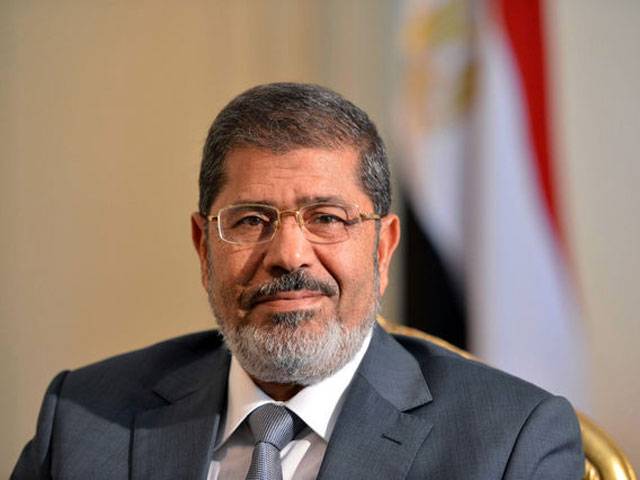CAIRO - Egyptian President Mohamed Mursi has signed into law a new constitution voted in despite weeks of opposition protests, but on Wednesday he was left facing an economic crisis and international disquiet over his rule.The Islamist-dominated senate convened on Wednesday to swear in 90 new members appointed by Mursi. It was expected to draft a law for legislative elections for the dissolved lower house that have to be held by the end of February.The National Salvation Front opposition coalition said it would vie for seats in the parliament, which has powers under the new charter that could hamper Mursi’s ability to govern.“We will work together to enter the election,” Front spokesman Khaled Dawoud said. He also said the coalition would legally contest the referendum, which it claims was riddled by fraud. Its supporters had demonstrated since late November against the document, with some clashes with pro-Mursi supporters turning bloody.The national electoral commission said late Tuesday that 64 per cent of voters in the two-round referendum backed the new constitution. Turnout was 33 per cent it said.Mursi immediately afterwards signed into law the charter, which had been written up by his Islamist allies. Christians and liberals boycotted the process in protest at changes they saw as weakening human rights, especially those of women, and possibly paving the way for the introduction of a form of fundamentalist Islamic law.The United States, which gives $1.3 billion a year to Egypt’s influential military, called on Mursi to work to “bridge divisions” with the largely secular opposition.“We have consistently supported the principle that democracy requires much more than simple majority rule,” acting State Department spokesman Patrick Ventrell said in a statement.“We hope all sides will re-commit themselves to condemn and prevent violence,” he said.The political crisis has taken a heavy toll on Egypt’s economy.The state-owned Al-Ahram newspaper reported there was “Fear in the Egyptian street” after rating agency Standard and Poor’s downgraded Egypt’s long-term credit rating one notch to ‘B-’.It reported that the government has restricted travellers from leaving or entering the country with more than 10,000 dollars.Mona Mansour, chief economist at CI Capital, said a crucial $4.8 billion International Monetary Fund loan that had been scheduled for this or next month might be postponed until the new parliament is established in March.The social volatility was seen as making difficulties for Mursi to meet financial reforms, such as tax hikes and subsidy cuts, the IMF was thought to have demanded in return for the loan.“You need to comfort the public that it’s not going to affect their pockets,” Mansour said.But she dismissed the possibility of the opposition in parliament scuppering the loan.Essam al-Erian, the deputy head of the Brotherhood’s political arm, said the constitution’s adoption and upcoming elections would help solve the country’s economic decline.“Every country has a crisis. But crises end, and we are now on the right path,” he said.In its report on Monday, Standard and Poor’s said it saw expected political tensions to remain “elevated” amid the deepening intractability of the political rivals.
Friday, April 19, 2024
Mursi signs disputed constitution into law

2:23 PM | April 19, 2024
President, PM condemn suicide blast, firing in Karachi
2:24 PM | April 19, 2024
Fly Jinnah launches another international route
2:23 PM | April 19, 2024
Interior minister directs foolproof security for Chinese nationals
2:20 PM | April 19, 2024
UNICEF to provide $20m for youth projects in Pakistan
2:04 PM | April 19, 2024
Maryam reviews progress on Nawaz Sharif IT City project in Lahore
2:04 PM | April 19, 2024
A Tense Neighbourhood
April 19, 2024
Dubai Underwater
April 19, 2024
X Debate Continues
April 19, 2024
Hepatitis Challenge
April 18, 2024
IMF Predictions
April 18, 2024
Kite tragedy
April 19, 2024
Discipline dilemma
April 19, 2024
Urgent plea
April 19, 2024
Justice denied
April 18, 2024
AI dilemmas unveiled
April 18, 2024
ePaper - Nawaiwaqt
Advertisement
Nawaiwaqt Group | Copyright © 2024





